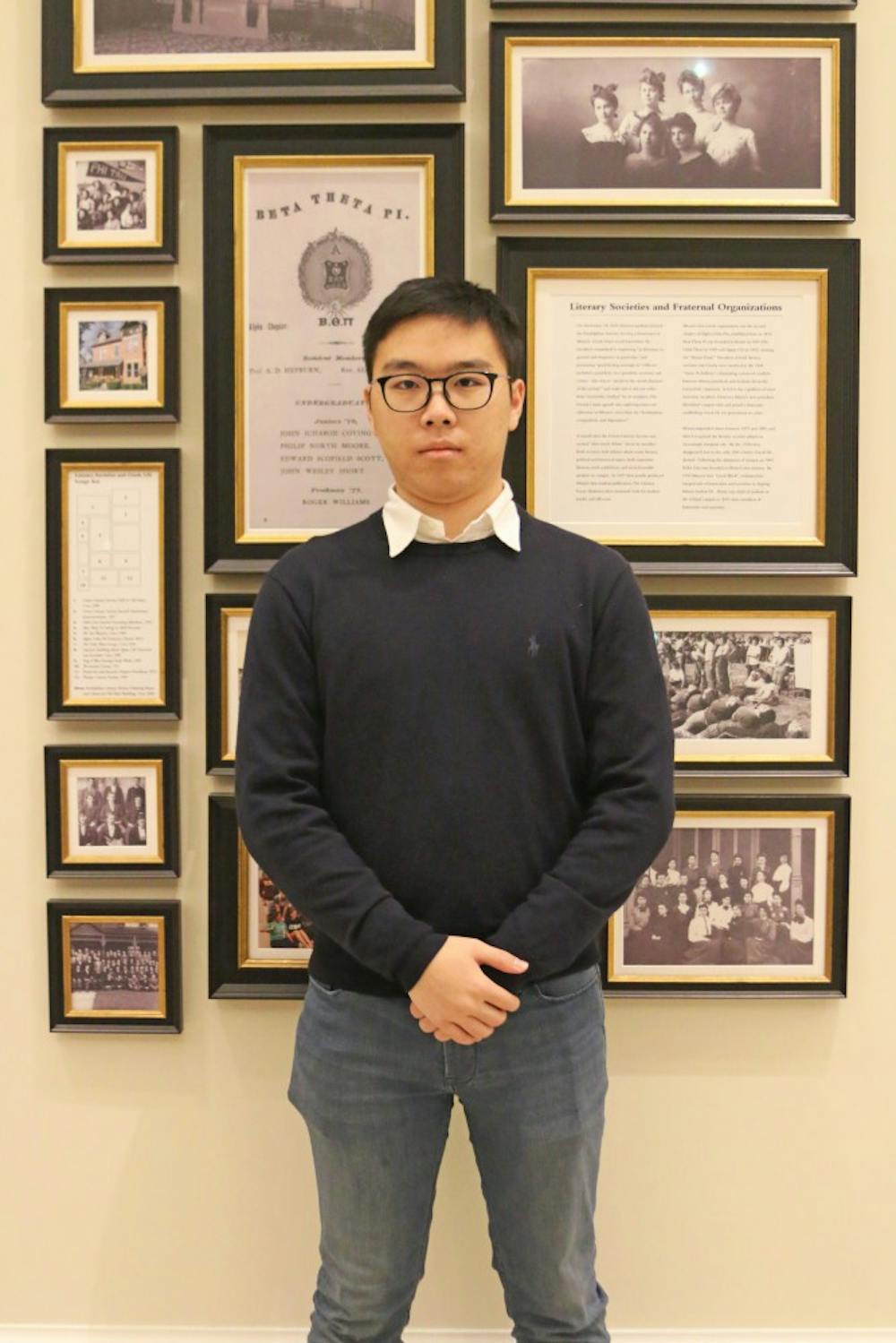[media-credit id=7252 align="alignnone" width="400"][/media-credit]
Sophomore accounting major Charles Wu came to Miami University knowing he would transfer.
Wu is originally from China and only applied to three schools in the United States. Miami was the one that accepted him, so he arrived here hoping to get into a school with a higher ranking after a year or two.
Now, he has been accepted into Ohio State University (OSU) for the spring semester. According to the current U.S. News and World Report, Miami ranks 96th in the country, while OSU is 56th.
Wu said that the Chinese culture values rank a lot more than Americans do because of China's school system, which publicly ranks students after every test.
"I think that's one thing that influence[s] Chinese culture, that people think about ranking very much," he said.
Miami's party culture has also pushed Wu to leave.
"I think because people around me can change me a lot," Wu said. "I think going to Ohio State is meeting...people that study more. Maybe it's different from our school, and maybe...changing the environment can improve myself."
Wu is not alone in thinking this way.
Although there is no data kept on international students' intentions when arriving at Miami, Carol Olausen, the Director of the American Culture and English (ACE) program, estimated between ten and fifteen percent of ACE students begin their time at Miami with the goal of transferring later on.
ACE is a program meant to improve the English skills of students who do not score high enough on the entrance exams to be placed directly in other university courses. The ACE students are conditionally admitted to Miami, meaning if their English does not improve after completion of the program, they will not be allowed to continue their education at Miami. This program is unique among peer institutions, and therefore attracts many students whose scores are too low to be accepted into other schools.
Olausen has seen many students like Wu in her time at ACE. She says they come here because it was the only place they were accepted, and they go to a school with a better ranking once they pass the ACE courses and get higher grades in their other classes.
Enjoy what you're reading?
Signup for our newsletter
Olausen said most ACE students who end up transferring did not plan on completing their college career at Miami. For students outside of this group, the majority of them will graduate from Miami. There are no reliable statistics for the graduation rate of ACE students because the program first started collecting data in 2014, where there were only around 20 students. The 2015 class was significantly larger, but they have not yet graduated.
Olausen believes many of these students have no choice in whether they stay at Miami, and are being pressured by their parents to attend a school with a higher ranking.
"We aren't seeing a loss of students because they are super dissatisfied with Miami," Olausen said.
Monica Venzke, president of the diversity affairs council (DAC), has had many conversations with international students who are considering transferring.
"I know of a lot of international students that I have personally met or worked with that have left Miami for different reasons," Venzke said. "I've had people say that [they're] homesick, but also... I know people that left Miami and went to a different American college because Miami wasn't working."
For Wu, he will be leaving behind close friends when he transfers. However, he looks forward to spending the rest of his college career at OSU, which he thinks will ultimately prepare him better for his future career as an accountant.
berryrd@miamioh.edu




